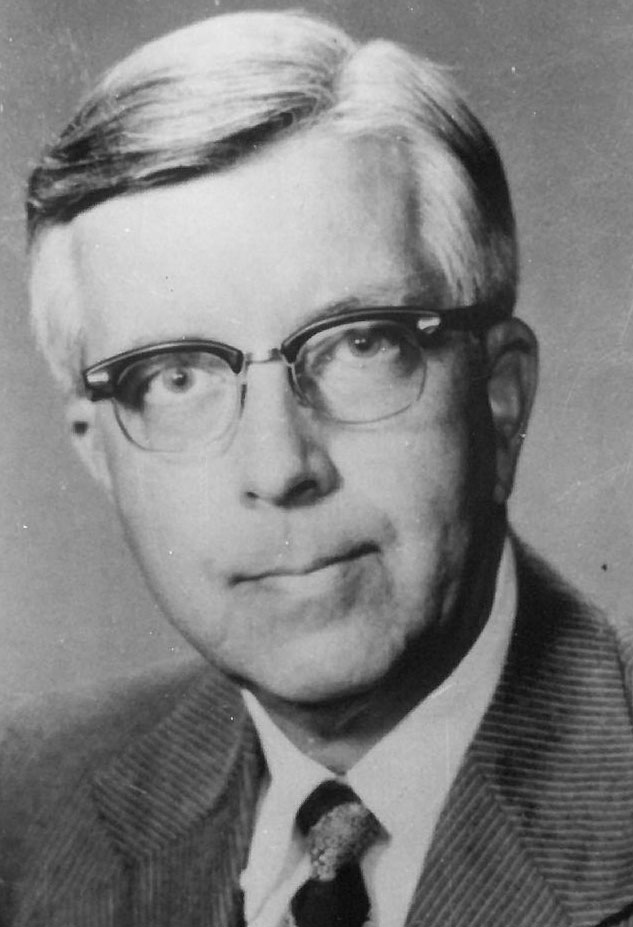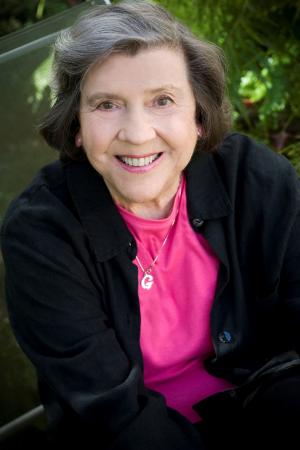
William E. Bell Jr., biblical studies professor, 1927-2017
DALLAS (BP) — William Bell, a biblical studies professor who — from his classroom and a local church — influenced the Southern Baptist Convention’s return to biblical authority, was honored in a Dec. 16 memorial service following his death on Thanksgiving Day at age 89.
 Bell taught at Dallas Baptist University for nearly 40 years and was theologian-in-residence at First Baptist Church in Euless, Texas, for nearly 30 years. His memorial service was held at the Dallas/Fort Worth-area church.
Bell taught at Dallas Baptist University for nearly 40 years and was theologian-in-residence at First Baptist Church in Euless, Texas, for nearly 30 years. His memorial service was held at the Dallas/Fort Worth-area church.
Jimmy Draper, who was senior pastor of the Euless church until becoming president of LifeWay Christian Resources in 1991, said Bell was “always willing to serve in the background as he served others. Serving with him was one of the most important thingjls in my life and ministry.”
Terry Wilder, professor of New Testament at Southwestern Baptist Theological Seminary in Fort Worth, who was Bell’s first graduate assistant at Dallas Baptist University in 1986, said Bell exerted “a quiet, yet strong, influence during the SBC’s conservative resurgence. He never sought the limelight but was content to remain behind the scenes, always being willing to lend help to any of the more well-known personalities in the endeavor.”
Though Bell never published a book, audio recordings of more than 140 lessons he taught are archived at the Discipleship Library (www.discipleshiplibrary.com/dr_bell.php), including multi-part surveys of the Old and New Testaments and series on the doctrines of God, Christ, the Holy Spirit, Scripture, the church, the Christian life, man and the future as set forth in the Bible.
“His ‘writings’ were primarily the disciples he made” both in his academic career and in the church, said Wilder, who also is Southwestern’s associate dean for Ph.D. research programs and holds the seminary’s Wesley Harrison Chair of New Testament.
When he was a DBU student, Wilder recounted, “I took more classes with him than I did with any other professor. The Lord used him to awaken in me a spiritual gift of teaching that I never knew I had and to instill in me a passion for the biblical languages.”
Describing Bell as “a man of exceptional analytical ability,” Wilder noted in comments to Baptist Press that he had “an uncanny proficiency to dissect an academic argument, being able to identify with precision and accuracy the underpinnings on which a case stood, and if those foundations were shaky, he also knew how to make the whole building collapse.”
Numerous other former students voiced deep appreciation for Bell, including several at “Rate My Professor,” including: “Changed my life. One of the best bar none” and “Presents every view on a topic clearly, then tells you why he believes a particular one. Great dry sense of humor. Knows his stuff, no filler.” Among comments by former students at an obituary website: “Dr. Bell was unique. Never without his Dr Pepper. His scholarly approach to biblical studies has had a lifetime impact on me…. His legacy as a teacher has impacted generations” and “I appreciate his detail-oriented lectures that caused me to think carefully about Scripture.” One former student noted at his blog, “I came to DBU to study under him and I was not disappointed.”
DBU President Adam C. Wright said the university “owes a debt of gratitude to Dr. Bell. We will forever remember his commitment to the Bible, Christian higher education and DBU.”
Draper, who was SBC president from 1982-1984, said Bell was “always gracious, always disciplined and demanding the same from his students.”
“I teased him that he could laugh without ever smiling. He was good-natured and helped me in more ways than I could ever describe,” Draper said. “We disagreed on the timing of the rapture. When we would discuss it, he would end with a wry smile barely appearing on his face and would say, ‘Well, you know, we could both be wrong.’ He helped me understand that disagreements should never become a point of division among friends.”
Bell held an end-times view that the church would experience the tribulation period described in the Bible — a view at odds with many in the SBC’s conservative resurgence and with many faculty members at Dallas Theological Seminary where he earned a master’s degree in theology in 1963.
Bell initially taught at The King’s College in New York City and earned a Ph.D. in theology at New York University in 1967, writing a dissertation titled “A Critical Evaluation of the Pretribulation Rapture Doctrine in Christian Eschatology.” And he joined DBU’s faculty that year, later serving as dean of the college’s Mary C. Crowley College of Christian Faith for more than a decade.
Voicing his overarching view of biblical authority, Bell wrote in a conservative publication, the Southern Baptist Communicator, in 1989 that critics of the conservative resurgence may cry “creedalism,” “soul competence” and “priesthood of the believer,” but “these objections are invalid. This is not creedalism; this is Christianity. This gospel is what separates historic Christianity from Hinduism, Islam, modern Judaism, and every cult arising within Christendom.
“Surely no one will contend that one can believe anything (or nothing) and be a Christian. There must be some truths which are non-negotiable.” No doctrine holds that “one can deny the faith and still be saved,” Bell wrote.
As far back as 1970, Bell wrote to a friend that his concern for biblical authority grew from “my previous experience in another major denomination, which has become a mere grotesque shadow of its former self.”
Born William E. Bell Jr. in Carthage, Mo., on Dec. 20, 1927, his family relocated several times during his youth due to the Great Depression and then lived several years in Fort Smith, Ark., and in Greenville, Miss., where he attended high school.
Bell earned a business degree from Georgia Tech in 1945 and an MBA from Louisiana State University in 1950. He served two years in the Army during the Korean War and worked eight years as a CPA with Arthur Andersen before turning his career toward the ministry — the result of studying New Testament Greek while attending a nondenominational church in Houston.
In SBC life, Bell was a trustee of the former Historical Commission and a member of the Committee on Nominations. New York University named him one of its distinguished alumni in 1968.
Bell is survived by his wife of 53 years, Martha; two daughters, Barbara and Nancy; and three granddaughters.
**********
Jeannette Clift George, actress & theater founder, 1925-2017
HOUSTON (BP) — Jeannette Clift George, whose acting career included the film portrayal of Corrie ten Boom, a legendary Dutch woman sent to a Nazi concentration camp for sheltering Jews during World War II, will be honored Friday, Jan. 12, in a memorial service following her death on Dec. 28 at age 92.
 The service for George, whose theater career began with students at Houston Baptist University (then-College) as actress-in-residence, will be at Second Baptist Church.
The service for George, whose theater career began with students at Houston Baptist University (then-College) as actress-in-residence, will be at Second Baptist Church.
The college’s A.D. Players, formed by George in 1967, became a nonprofit theater company in 1969 which she led as founder/artistic director, yet she remained a supporter of HBU’s drama students throughout her career.
The 1975 film “The Hiding Place,” based on ten Boom’s autobiographical book with the same title, was produced by the Billy Graham Evangelistic Association’s World Wide Pictures division. George was nominated for a Golden Globe Award for her performance.
Corrie ten Boom’s sister died in a Nazi concentration camp and she never saw her father again after he was arrested by Nazi troops in the Netherlands.
Last year, 50 years after the founding of the A.D. Players, George lived to see the opening of the Jeannette & L.M. George Theater (named in honor of her husband Lorraine M. George who died in 2004) in Houston’s Galleria-Uptown area. The modern theater, encompassing 35,000 square feet, can seat 450 people.
An online obituary noted that George’s life “is best described in her own words … [that] challenged us ‘to be not merely receivers of God’s gifts but active conduits of their treasure.'”
She had prayed that “God would do something about the need for Christian theater,” yet, “I never meant me, but on the wind of the Holy Spirit many of us find ourselves serving surprising assignments.
“Trust God’s assignments,” George counseled. “He never assigns us to do what He has not already equipped us to do.”
Ed Young Sr., Second Baptist’s pastor, described George as “a phenomenal woman, a gifted actress as well as a very skilled entrepreneur for Jesus Christ” and “a Bible teacher you always enjoyed being with because of her wit and unbelievable creative mind.”
George was “a dear sister in Christ” who will be “greatly missed by literally thousands of people,” Young, a former Southern Baptist Convention president, said.
As a child, George wanted to be an actress, “vowing to join the circus as a trapeze artist or sing as Madame Butterfly, carrying a Japanese parasol,” the obituary recounted, quoting George as later saying, “Never underestimate the dream of a child. Never sell your own dreams short. Turn them over to the Leading Actor, Who is the Christ. You are a beloved child whose dreams and hopes He holds as mysterious treasures considered carefully in His perfect plan.”
Billy Graham’s daughter Ruth said in filming The Hiding Place, George was “a treasure on and off the stage. She was a great friend to both of my parents, Billy and Ruth Bell Graham. But especially for Mother. My mother trusted their friendship perhaps as none other. Their friendship was a safe place for both — where confidences could be shared, silliness enjoyed and the Scriptures explored. They shared their hearts. They were old-fashioned girlfriends. A lovely gift to both of them who so often had to be in the limelight.”
In addition to The Hiding Place, George’s career included performances with the New York Shakespeare Company, Playhouse in the Park in Philadelphia and Arena Stage in Washington, D.C. Her first A.D. Players performance in 1968 was in “IBID” and her last was in 2012 in “Whatever Happened to the Villa Real,” both of which she wrote.
George authored a number of books, including “Behind the Hiding Place,” “Travel Tips from a Reluctant Traveler,” “Some Run with Feet of Clay” “Daisy Petals” and “Troubling Deaf Heaven: Assurance in the Silence of God” after the death of her husband.
She was a graduate of the University of Texas and had received honorary doctorates from Houston Baptist University and Dallas Baptist University.
Susan Santangelo, chair of A.D. Players’ board of directors and lifelong friend, said George’s talents as an actress, playwright, speaker and teacher were prolific. “Her legacy will live in the hearts of those whose lives she touched with these gifts, and in the ongoing work of A.D. Players, which she founded and led for nearly five decades,” Santangelo said. “Those of us who knew and loved Jeannette well will remember her laughter, her winsome teaching, her lifelong passion for theater and her steadfast love for her Lord Jesus Christ.”












